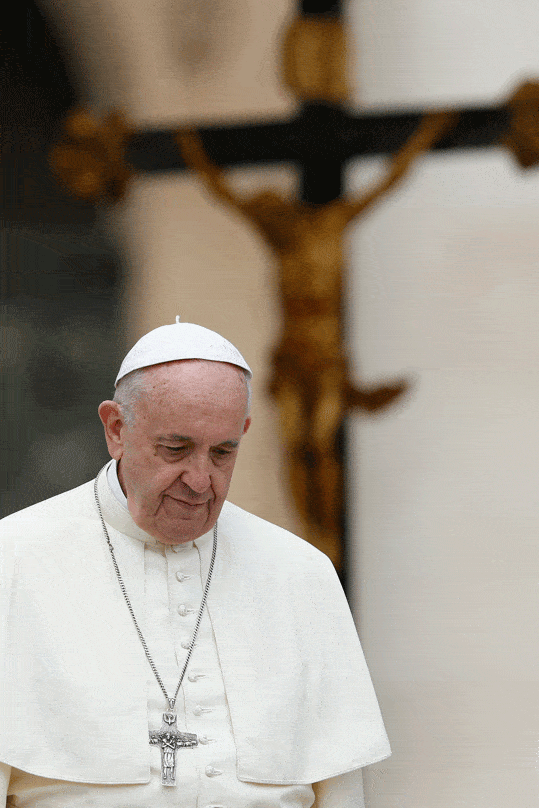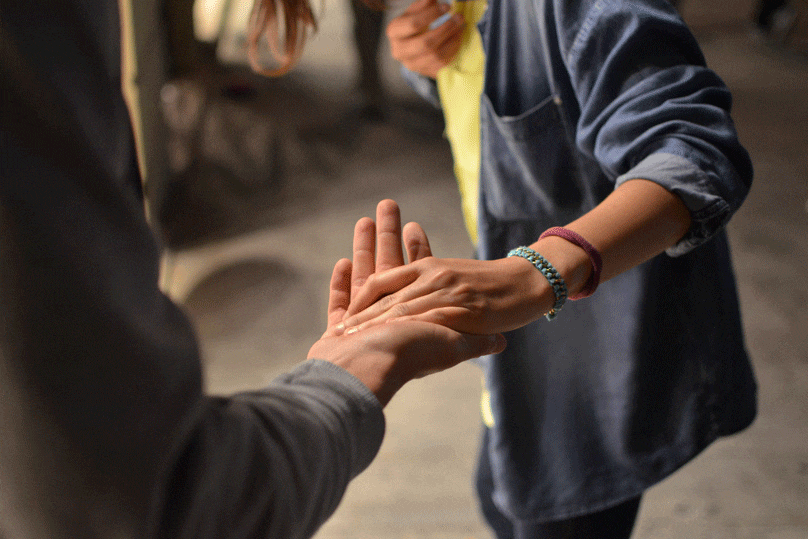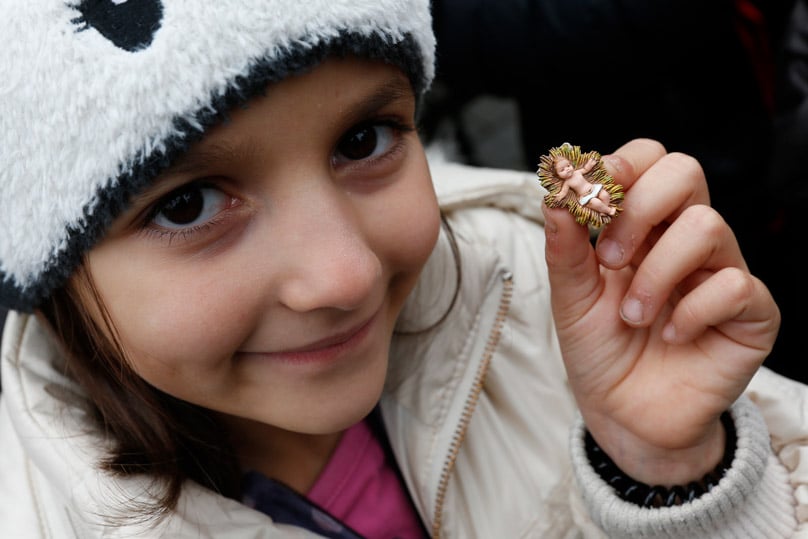
Have you read begun reading ‘Rejoice and be Glad’ yet? Because if you only read articles like this one about Pope Francis’ new apostolic exhortation on the call to holiness and not the thing itself you are missing out big time, my friend.
You’ll get wrong or misleading information too if you only rely on what journalists or other commentators say about it.
In Gaudete et Exsultate (‘Rejoice and Be Glad’) Pope Francis writes that his “modest goal is to re-propose the call to holiness in a practical way for our own time…For the Lord has chosen each one of us “to be holy and blameless before him in love” (Ephesians 1:4).
Indeed, “a Christian cannot think of his or her mission on earth without seeing it as a path of holiness”.
The document reiterates the major themes of his pontificate: the joy of the Christian life, lived intentionally; the value of simple every-day goodness; the danger of following an ideology rather than Christ; and the call to seek God’s mercy and be merciful ourselves.

In his very direct style I think the Pope is saying much that is necessary about following Jesus Christ. But it requires careful reading in some parts with as much humility and as open a mind and heart as possible to appreciate what he is getting at.
Dot-point ‘takeaways’ won’t do it justice, but I’ll offer some in the hopes that you will go and read the whole thing for yourself:’
God wants us to be saints
“The Lord asks everything of us, and in return he offers us true life, the happiness for which we were created. He wants us to be saints and not to settle for a bland and mediocre existence.”
Why? Because “in the words of León Bloy, ‘the only great tragedy in life is not to become a saint”, the Pope writes.
But we have to get rid of pious notions of sanctity which have no relevance to our own personality and the circumstances of our daily life.
“We should not grow discouraged before examples of holiness that appear unattainable,” he writes.
For example, “to be holy does not require being a bishop, a priest or a religious.”
He gives an example of a woman growing step by step in holiness by refraining from gossiping with a friend, and staying up late listening to one of her children “with patience and love” even though she’s tired.

Do not be afraid of holiness, he adds. “It will take away none of your energy, vitality or joy. On the contrary, you will become what the Father had in mind when he created you, and you will be faithful to your deepest self.”
Our holiness is in Jesus and grace, not our intellect or will.
Ours is not a self-help gospel, neither can we claim any superiority over others because we know more about some aspect of the faith or tradition.
The Pope warns that it’s easy to fall for false forms of holiness – new forms of the old heresies gnosticism and pelagianism – which reject God’s transcendence and make our subjective experience or knowledge the sum total of our lives. “In neither case is one really concerned about Jesus Christ or others.”
Healthy and humble use of reason is important, though, he says.
The Beatitudes will make us happy
These are the Christian’s ‘identity card’ through which Jesus teaches what it means to be holy. Frequent re-reading and trying to embody them “will make us happy”. The Pope goes through each beatitude – it’s a useful reflection.

The saints are our friends
They cheer us on, enlighten and accompany us. The Pope refers to some of the most wonderful words of the saints on prayer, charity, and growth in holiness. I bet you’ll find a favourite saint in there!
Perseverence and humour are signs of holiness
Along with patience and meekness, a sense of humour, passion, and constant prayer.
About prayer he says, “we are frequently tempted to think that holiness is only for those who can withdraw from ordinary affairs to spend much time in prayer. That is not the case. We are all called to be holy by living our lives with love and by bearing witness in everything we do, wherever we find ourselves.”

He adds, “the saints are distinguished by a spirit of prayer and a need for communion with God…I do not believe in holiness without prayer, even though it need not be lengthy or involve intense emotions.”
Watch out for the devil
The call to holiness is grounded in our baptism, and “in the Church, holy yet made up of sinners, you will find everything you need to grow towards holiness.” It is an encounter of God’s grace with our weakness, and a “constant battle” with the devil.
For spiritual combat, we can count on the “powerful weapons” of faith-filled prayer, meditation on scripture, the Mass and Eucharistic adoration, Reconciliation, works of charity, community life, and missionary outreach.
Other gems:
Awesome advice like this about cultivating a grateful memory: “Think of your own history when you pray, and there you will find much mercy. This will also increase your awareness that the Lord is ever mindful of you; he never forgets you.”
Now go read it – and continue on the adventure towards holiness with me!
